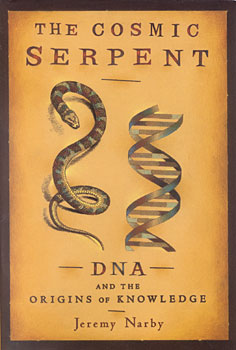Quotes from Jeremy Narby
The rational approach starts from the idea that everything is explainable and that mystery is in some sense the enemy. This means that it prefers pejorative, and even wrong, answers to admitting its own lack of understanding.
The molecular biology that considers 97% of the DNA in our body as “junk” reveals not only its degree of ignorance, but the extent to which it is prepared to belittle the unknown. Some recent hypotheses suggest that “junk DNA” might have certain functions after all. But this does not hide the pejorative reflex: We don’t understand, we shoot first, then ask questions. This is cowboy science and it is not as objective as it claims. Neutrality, or simply honesty, would have consisted in saying “for the moment, we do not know.” It would have been just as easy to call it mystery DNA, for instance.
…
Strangely, [biologists'] newfound conviction was hardly troubled by the discovery in the 1960s of a genetic code that is the same for all living beings and that bears striking similarities to human coding systems, or languages. To transmit information, the genetic code uses elements (A, G, C, and T) that are meaningless individually, but that form units of significance when combined, in the same way that letters make up words. The genetic code contains 64 three-letter “words”, all of which have meaning, including two punctuation marks.
As linguist Roman Jakobson pointed out, such coding systems were considered up until the discovery of the genetic code as “exclusively human phenomena” – that is, phenomena that require the presence of intelligence to exist.
Source: The Cosmic Serpent: DNA and the Origins of Knowledge [Paperback] - Jeremy Narby (Author)
